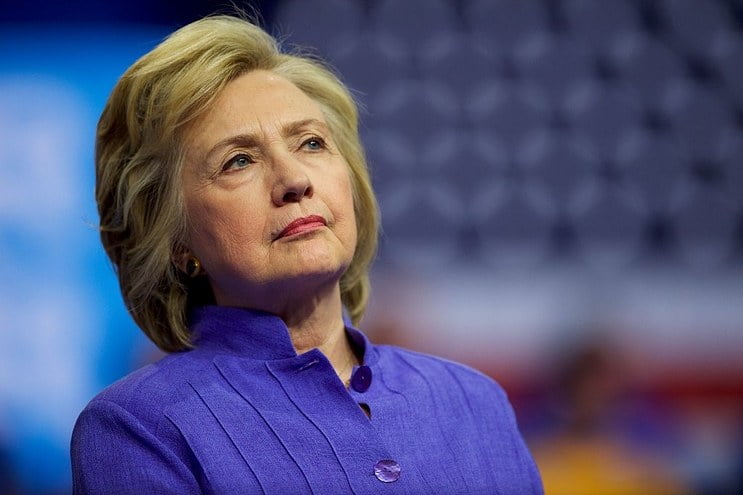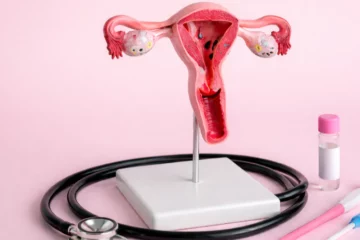.jpg)
“Doesn’t she look tired?” has always been code for “this woman is weak,” and now Trump supporters are using it to attack Hillary Clinton’s health.
Last Friday, Clinton released a slew of documents, largely to increase the pressure on Trump to release his tax returns. Among these documents were her tax returns and a note from her doctor, Lisa Bardack, M.D., which said the candidate was in “excellent physical condition and fit to serve as president of the United States.” For some reason, that may have actually fueled more speculation about her health—from Fox News host Sean Hannity andother conservative media outlets, but also from Donald Trump himself, who said Tuesday that she “lacks the mental and physical stamina to take on ISIS.” In their response, a Clinton campaign director shot down the comments as “deranged conspiracy theories.”
The note from Dr. Bardack goes into Clinton’s history, and says that while she was once treated for a blood clot and allergies, they aren’t issues that would prevent her from serving. But at the heart of comments like Hannity’s (who speculated that Clinton might have suffered from seizures) is a toxic strain of sexism. These comments suggest an overall weakness that could compromise a woman’s ability to function in a high-powered position. It’s an ugly version of the classic “style over substance” arguments that have kept women from earning the same as men in the workplace and occupying the same leadership positions. The health question might even be worse, because it’s so often disguised as genuine concern. Except that it’s almost never truly genuine concern, but a covert way to undermine a woman’s ability while protecting the person doing the undermining.
Of course, Hillary has been on the receiving end of sexist comments for nearly her entire career. In 2008,questions abounded about her hairstyle, her clothing and her health. She’s even come up with some solid ways to shut down these remarks, such as when an interview moderator asked her who her favorite designers were and she quipped, “Would you ask a man that question?”
In 2010, the Women’s Media Center made a supercut of all the times Clinton faced casual sexism during her 2008 presidential campaign, and it’s painful — and painfully familiar. Who among us hasn’t felt terrible when we went light on makeup at the office and were told we looked tired? Check it out below:
But even if these comments highlight Clinton’s thick skin when it comes to criticism, the health question seems extra pointed. It’s the other side of the “asking about a woman’s weight” coin, and no politician or reporter would be dumb enough to do that, right? Oh but of course they would. New York Senator Kirsten Gillibrand wrote in her bookthat she was called “chubby” by a male colleague, and over in the U.K., Labour Party politician Liz Kendall was asked how much she weighs by a reporter looking to compare her with Kate Middleton. Not only are these comments gross, but there’s some evidence to suggest that they can even impact whether women succeed in elections.
Some conversation about the candidates’ health is expected, and even necessary. Clinton and Trump are two of the oldest presidential nominees in American history, and it’s important to know that they’d be fit to serve. While those on the left are trying to figure out a medical reason to justify Trump’s sometimes contradictory behavior, those on the right have been trying to come up with reasons to prove Clinton is unqualified—her health, despite what she’s told us about it, is just the reason du jour.
Trump released his own doctor’s note in 2015, for which he’s also faced criticism from opponents. The most entertaining theory posits that the doctor who signed off on Trump’s medical note sounds an awful lot like Trump himself, particularly when the letter states that Trump’s “physical strength and stamina are extraordinary” and that he “will be the healthiest individual ever elected to the presidency.” Reporters have repeatedly asked questions about Trump’s mental health, wondering if he’s “crazy” or “a sociopath.” It’s important to note that none of these writers are Donald Trump’s psychiatrist and none of them can diagnose him—it’s unethical (though perhaps a little bit tempting) to speculate.
More than anything, it’s hypocritical for Trump to suggest Clinton might be hiding knowledge about her health from the public. After all, this is the candidate who has come up with repeated excuses—including the one this article is about—to distract from how he hasn’t released his tax return. Until Donald Trump is totally candid with his own records, we can only assume that he is the one with something to hide.
[Source: Glamour]




